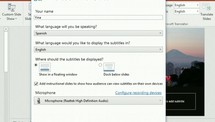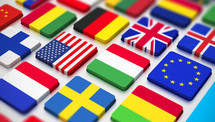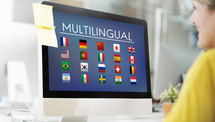Is Google Translate accurate: Pros & Cons of the Software
Google is widely known for being the best search engine on the entire internet. It can provide some of the most accurate search results and it sometimes seems like Google knows exactly what you mean and what you need to find. On top of that, Google also provides some wonderful cloud services, such as Google Docs or Sheets, along with the greatly designed email and calendar. Yet, nothing is perfect, and Google is no exception. Many have remarked well on most services provided by the company, yet, one always remained somewhat behind. While Google hits the bull’s eye when it comes to searching something, many people still ask, is Google Translate accurate at all, and if yes, how accurate is Google Translate?
What is Google Translate?
Of course, first things should go first, so explaining what is Google Translate is and why even Google may have doubts about its accuracy would be appropriate. Google Translate (GT) is an online translation service offered for free by the developer of the world’s most famous search engine. It’s extremely simple in use, quick, and can provide the general picture of a certain word or phrase in another language. So, if you need to transpose a short piece of information from one language to another, GT will be a great tool for you. When you, for instance, want to translate a short phrase or a shop sign in another country, that’ll work. But that’s mostly it. There are tons of reasons why you should not use Google Translate for more serious texts or your work. But let’s talk about how it works first in order to understand why it’s not reliable enough.
How does Google Translate Work?
Essentially, Google Translate can be considered as extremely advanced and modern technology. Currently, GT uses machine learning to improve the quality of its work and provide more accurate results in the future. By accumulating all past translations within various language pairs, along with users’ feedback and behavior, Google Translate researches a vast database throughout the whole internet to produce the translation results until the users will find them accurate. Previously, this machine translation service used documentation from the United Nations database to produce translation results in the first place. Now, you may ask yourself, «so, what are the Google Translate problems?» This thing seems perfect. Yet, neither machine learning, nor the UN database can help when it comes to certain language specifics.
Accuracy of Google’s Translations
Although GT seems flawless from the theoretical standpoint, it has some serious drawbacks when it comes to translating something non-formulaic, unconventional, or creative. Such an input would go beyond basic terminology, daily conversation, or essential and uniform documentation. In most cases, however, that’s exactly what we need from the translator at hand.
In some cases, Google Translate manages to handle that. This largely concerns the most widespread languages of European origin, such as French, Spanish, German, or even Afrikaans. The examples of bad Google Translate work seem to be rare here. In addition, when the target language is English, the translator seems to work just fine. So, it would not be a problem to get a fairly accurate Spanish to English output. Yet, unfortunately, this is where the benefits of using Google Translate end, and the real issues start. For the most part, Google Translate cannot be used for any professional activity, unless you do want to sound funny and awkward.
- Useful information: The team of professionals has selected the best Norwegian translation companies for all your needs.
The Main Issue With GT
The main problem with Google Translate that it does not always recognize the context correctly, especially in longer passages, as well as it might not be accurate with certain idiomatic phrases. Considering this, Google translations online are certainly no good for translating creative texts, localization, or otherwise serious and professional work. If you decide to process something like through GT, you might get in a very awkward situation with inappropriate and out-of-place sexual references, literal translations of idioms, or even the translations of proper names.
While that may not seem like a huge problem, just think about the users of your website, your employer, or any other person with who you have to work officially and professionally. Yet, why exactly you shouldn’t rely on Google Translate entirely when working with something serious? Are there any other issues besides the inaccuracy of translation? The reasons for not relying on GT are not many, in fact, but they certainly are considerable, just as the issues that constitute these reasons.
Why is Google Translate So Bad? 7 Reasons Not to Rely on Google Translation Tool
-
#1. Appropriateness of translation. While we’ve covered the accuracy, the appropriateness would be a more fitting quality here. While Google Translate can be totally accurate at times, it might not be exactly appropriate. You might go very wrong at times and have unexpected sexual encounters with your pens and pencils or ask someone to do inappropriate things when simply meaning to wish a merry Christmas. Accuracy does not always guarantee that you will be understood properly in another language.
-
#2. Evidently robotic translation. Machines cannot replace humans yet, even though they can do just as many things as humans can. Machines can learn, talk, and even compose music, but they don’t have enough of sufficient detail to do that to sound human. If you really need to make some translation work fast, you should address professional translation services for that. Such services work extremely quickly today and will certainly provide you with accurate, appropriate, and human-looking/sounding translation.
-
#3. Privacy issues. While GT does not show good results in professional translation, is Google Translate reliable at all? Well, not if you work with confidential or otherwise important data. As GT essentially learns from what you put in it, it stores its data somewhere anyway. So, if you’re seriously considering translating some documents at your work using Google Translate, please, stop!
-
#4. Inapplicable for localization. If you want to go international, the mere translation is not enough, you have to localize. That is when you adapt the content of your brand to the language-specific of the region you target, as well as its culture. Now, guess what Google Translate knows about people’s football preferences in Mexico. Exactly, not much, if anything at all. So, if you need the localization service, consider addressing a professional.
-
#5. Google Translate does not follow your instructions. While it’s the only function is to translate really, GT will not do it as you’d like it to be done. It cannot translate with a feeling, it cannot use local dialects on its own, and it cannot revise anything. So, if you need to do real work, you should hire a human specialist.
-
#6. Not a professional translation. Obviously, if it’s not done by a professional, it cannot be called like that. And oftentimes, a professional translation equals to a certified translation. So even if the security issue is not a problem for you, you will not translate your documents according to all needed procedures with GT.
-
#7. Doesn’t work with all language pairs well. While Google Translate can perform relatively well with many languages, there are a lot of languages understudied by GT. As such, various evaluations have shown that the tool is absolutely disastrous for Asian, African, and most Indigenous languages. So, if you can’t translate something from one of the hardest languages to learn for English speakers, Google Translate will be very unlikely to handle it either. Just think about it pragmatically.
How Good is Google Translate and in Which Cases Is It Acceptable?
While the impression of Google Translate as the professional translation tool is not quite good, it still can and should be used sometimes. We have earlier provided an example for tourists, yet, there are some others as well. One of the finest examples of the appropriate use of GT is using it as a dictionary. Google Translate has proven itself very well as the one-word translator, as well as it can sometimes perform adequately well in two to three-word combinations. So, if you don’t have the dictionary by yourself, you can safely use Google Translate. Is the Google translator accurate in such cases? Certainly. Will it fulfill your current needs? Most likely.
Believe it or not, but Google Translate can still be used when you work with a translation professionally. Aside from being a dictionary, Google Translate can serve as your time-saver by translating simpler and more conventional bits of your text into the needed language. In such cases, all you’ll have to do is to just edit the text here and there, adding some specific tonal and otherwise human elements.
Alternatives for Google Translate
If, for any reason, you don’t want to use Google Translate anyway, but still need some kind of tool to work with to save time or to get the general picture of what needs to be translated, there are a couple of alternative solutions.
-
Use translation programs or apps. While most of them work in a similar fashion to GT, the pre-developed applications tend to have a more accurate database created, allocated, and updated by the human specialists.
-
Consider working with a professional translation agency. While this might seem costly at first, it is totally worth it, whatever it is. If you were ever wondering how much do translators make in the U.S. and worldwide, you might get surprised upon finding out that they charge rather fairly for their work. Even such huge top platforms as TheWordPoint accommodate the needs of different scales.
-
Contact the native speaker. The best solution to translate something fairly well, not too costly, and quickly enough would be asking your foreign friend. While the resulting translation might not be very professional or super-accurate, it will certainly be human and such a person will not charge you additionally for the formalities and professionalism.
Is Google Translator Trustworthy After All?
The answer to that question will largely depend on what kind of translation you’ll need. If you need to translate something on the spot to get a quick answer, then yes. If you need a serious translation of the professional medical documents that might even be confidential, then most certainly not. After all, no machine can replace a human translator who will rely on context while doing his or her work and who will understand all the informal parts and bits of the document, speech, or anything else requiring a translation.













